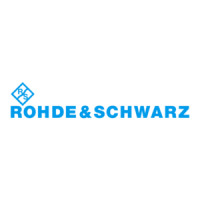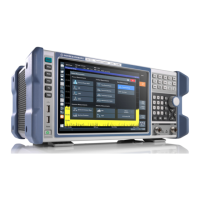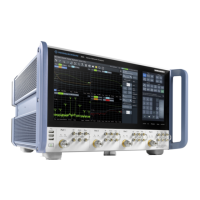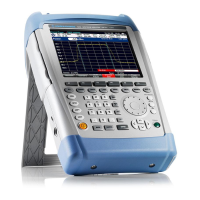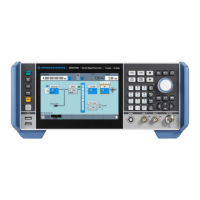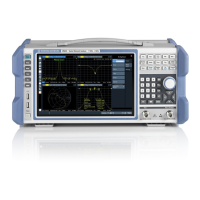Noise Figure Measurements Option (K30) R&S FSL
1300.2519.12 2.104 E-11
Fig. 2-75: Calibration and measurement on DUTs with a high gain
Frequency–Converting Measurements
The frequency–converting measurement is used for DUTs with an output frequency that differs from the
input frequency, e.g. mixers and frequency converters. The frequency–converting measurement allows
many variations, which differ from each other in two criteria:
Fixed LO Measurements
Image–Frequency Rejection (SSB, DSB)
Fixed LO Measurements
In the Frequency Settings dialog box, select one of the following settings for the Mode parameter:
fixed LO, IF=RF+LO, for up–converting devices
fixed LO, IF=abs(RF–LO), for down converters or image measurements
Image–Frequency Rejection (SSB, DSB)
Frequency–converting DUTs often do not only convert the desired input frequency but also the image
frequency. A broadband noise source offers noise to the DUT not only at the input frequency but also at
the image frequency. If the noise power at the IF gate is measured, the origin of the noise can no longer
be determined. It may have been converted both from the input and from the image frequency range.
Test setup
Set the following parameters:
IF (intermediate frequency): 100 MHz
RF (input frequency): 400 MHz
LO (local oscillator frequency): 500 MHz
image (image frequency): 600 MHz
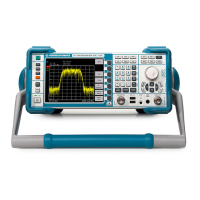
